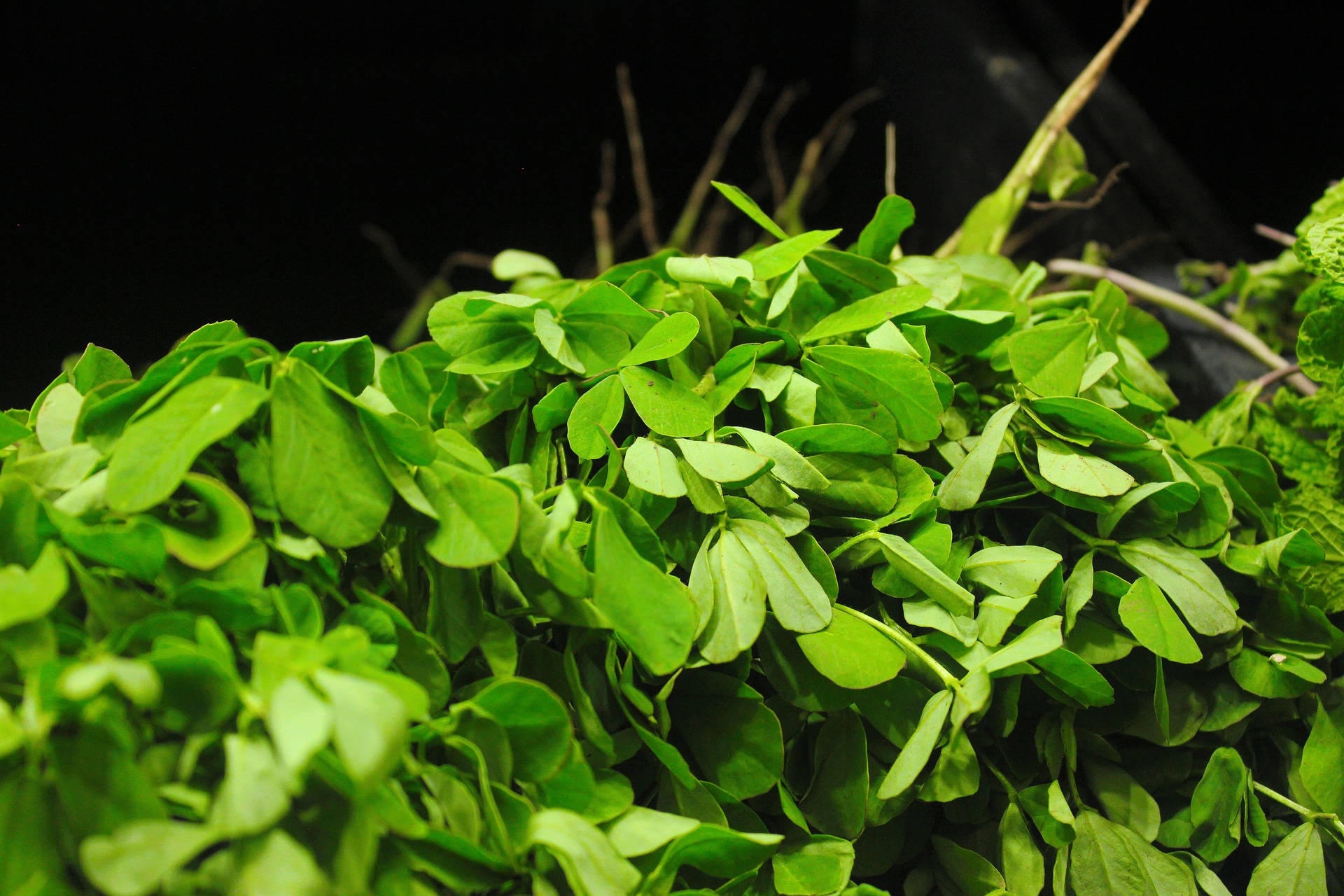Fenugreek is a plant from the Fabacaea family, which also includes peas or legumes. The plant has a cluster of 3 oval leaves. The leaves can be eaten as such, as vegetables or in salads. The seeds are used as a spice.
The taste of fenugreek is quite similar to that of maple syrup. The leaves are sweet and can be combined with spicier aromas, while fenugreek seeds have a more bitter taste, which is attenuated when cooked.
Along with anise, coriander, black peppercorns, and cinnamon, fenugreek is a famous spice in Chinese cuisine and is often added to curry dishes.
Nutritional profile:
- 3 g of fiber
- 3 g of protein
- 1 g of fat
- 6 g of carbohydrates
- 20% iron of the recommended daily dose
- 7% manganese of the recommended daily dose
- 5% magnesium of the recommended daily dose
Fenugreek benefits
1. Aids digestion
Fenugreek stimulates the appetite and has long been used as a remedy for certain gastric problems, such as gastritis, constipation, or an upset stomach. Studies show that this plant slows down the absorption of sugar in the stomach and stimulates insulin production. Taken together, these two effects lower the blood sugar of people with diabetes.
2. Stimulates lactation
Fenugreek seeds are lactogenic and have been prescribed to nursing women for centuries in order to increase milk secretion. However, we recommend that you consult your doctor beforehand, especially regarding dosages.
How to use fenugreek
For internal use
Most often, fenugreek is consumed in the form of tea or spice. Tea can be prepared by grinding the seeds with a grinder. In a cup of water, boil 1/4 teaspoon of ground fenugreek seeds. After the water boils, let it infuse for a few minutes. Fenugreek tea can be sweetened with honey.
Fenugreek can also be used as a powder. Grind the seeds 10 minutes before use. Take a teaspoon of powder 2-3 times a day, hold it under your tongue for a few minutes, then swallow it with cold water.
The fenugreek decoction is obtained from 2 teaspoons of ground seeds that are boiled over low heat for 5 minutes. People suffering from lung diseases can consume this decoction 2-3 times a day.

To soak the crushed fenugreek seeds, you need to leave them in 250 ml of water for 8 hours and at room temperature.
Infusion of fenugreek seeds – soak overnight 2 teaspoons of fenugreek powder in half a cup of water. In the morning, add another half cup of boiled water over the remaining powder. Let it infuse for a quarter of an hour, strain it, and mix both extracts. Drink a cup of infusion 15 minutes before the main meals of the day.
For external use
Fenugreek compresses can be applied to open wounds, sores, various rashes on the skin, or even for headaches.
Poultices from fenugreek seeds can be applied to inflamed lymph nodes. These are obtained by mixing the crushed seeds with water until a paste is obtained.
You can also take baths with fenugreek. Put a handful of the plant in 5 liters of boiling water, which you then pour into the bathtub. Stay in the bathtub for 30 minutes.
Fenugreek is a versatile plant that adapts to our needs both in terms of therapeutic properties and nutritional values. It is easy to introduce into the diet, gives a special flavor to the dishes, and in return offers important health benefits. That’s why it’s worth introducing fenugreek more often in your diet!





